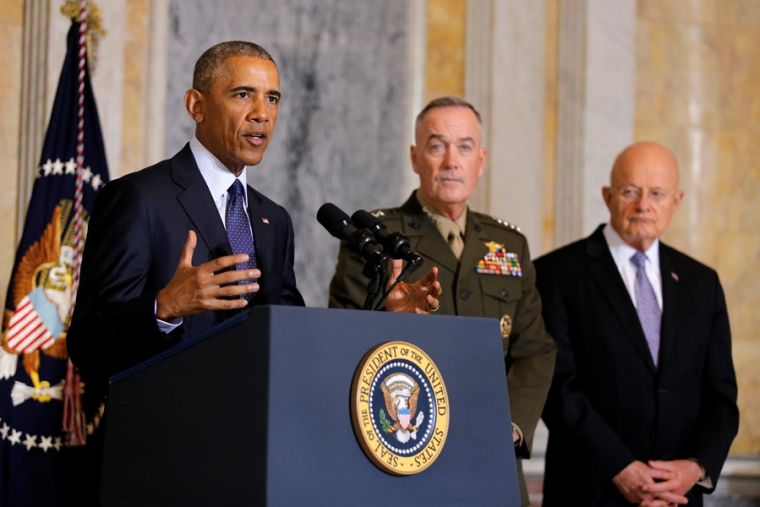Obama answers critics on why he refuses to pin terror blame on 'radical Islam'; expert says argument is 'counter-productive'

U.S. President Barack Obama lashed back at critics who accuse him of failing to address the growing problem of terrorism by his failure to use the term "radical Islam" to acknowledge the source of the problem.
Speaking at the White House on Tuesday, two days after the mass shooting in Orlando, Florida, which killed 50 people, the President insisted that the fight against terrorism cannot be won by using that term, Newsmax reports.
"We cannot beat ISIL unless we call them 'radical Islam?'" Obama asked incredulously.
"What exactly using this label would accomplish and what will it change? Will it make ISIL less committed to try to kill Americans? Would it bring more allies for military strategy than it is served by this?"
The answer, he said, is "none of the above."
"Calling a threat by a different name does not make it go away," Obama went on, adding that this is just "political distraction."
"There is not a moment where we have not been able to pursue a strategy because we didn't use the label "radical Islam,'" he said.
Obama said not once has an adviser told him that if he uses the phrase it would lead to the defeat of the enemy.
The President then harped on his oft-repeated formula for stopping terror: Making it harder for people to kill Americans by way of stricter gun control measures.
"We cannot prevent every tragedy," said Obama. "There are common sense steps that could reduce gun violence and the lethality of somebody intense to do somebody harm."
These steps, he said, include a ban on the sale of assault weapons.
However, Obama's arguments were quickly refuted by Walid Phares, a top foreign-policy adviser to presumptive Republican presidential candidate Donald Trump.
"The president's statement is counter-productive to our counter-intelligence activity," Phares said, according to WND.
Phares said identifying the enemy—radical Islam—creates clarity to the public and America's allies, adding that not creating distinctions actually risks the alienation of all Muslims.
He said accurately describing the enemy is crucial in the fight against terrorism. He cited World War II as an example.
"What would be the profit of calling Nazis 'Nazis' or during the Cold War calling the Bolsheviks or Communists 'Communists'? This is the number one goal when you are in a confrontation, is to identify for your allies and for your people who you are fighting against," Phares said.
He said this is crucial in America's counter-terrorism campaign.
"We need our experts within our own agencies to be able to make a distinction between those who are jihadists and those who are not," Phares said.
He said the government can't expect help from the public in the war against terror if the government can't define who the enemy is.
"You need to educate your public. If the public doesn't know who the enemy is, what the ideologies, narratives and words are, how will the citizens help you?" Phares asked. "How will they detect? How can they report if they see something, say something? What is that something they're going to see or hear about?"
He said naming the enemy is also vital in building alliances to effectively fight this enemy.
"President Obama is talking about the world looking at us if we use these words. Precisely. The French use Islamist. The British do the same. The Russians have the same terminology," said Phares, adding that moderate Arabs and Muslims also use specific words to describe the radicals among them.
Even the grand imam of Egypt, whom Phares says is the equivalent of the Catholic pope, has no problem using clear terminology.
"He calls them Islamists, takfiri, jihadists. So if the highest figure in the Arab and Muslim world and so many other figures do designate them with these words, what is the president talking about?" he asked.
Phares said he is at a loss on where Obama gets the idea that using terms like "radical Islam" would turn all Muslims against Americans.











